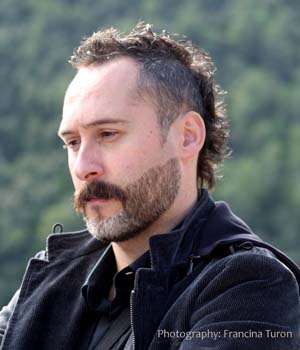Professor Jordi Vallverdú
The Journals Newsletter article Robots Grow Emotional With Advancing Technologies said
“The future hints towards promising and exciting advancements in the field of synthetic emotions, according to Universitat Autonoma de Barcelona (Spain) professor and renowned scholar Dr. Jordi Vallverdú. His groundbreaking journal, International Journal of Synthetic Emotions (IJSE) covers the main issues relevant to the generation, expression, and use of synthetic emotions in agents, robots, systems, and devices.‘Concerning the future of this field, I am completely fascinated and anxious for bottom-up (basic emotions implemented into robotic devices) as well as for top-down (simulations of emotional answers) approaches but, perhaps, the most exciting project for the future is the creation of emotions inside of artificial devices,’ says Vallverdú.
Vallverdú states that emotions are action regulators and therefore, inferring from the natural evolution of beings, perhaps the feeling of an emotion is an emergent property of such a complex system.”
Jordi Vallverdú, Ph.D., M.A. is Associate Professor of philosophy in science & computing at teaches Philosophy and History of Science and Computing at Universitat Autònoma de Barcelona (Catalonia, Spain). He holds a Ph.D. in philosophy of science (UAB) and a master in history of sciences (UAB).
Jordi has done short-term research stays at the Glaxco-Wellcome Institute for the History of Medicine (London) as Fellowship Researcher, 2nd semester 1998, and at J.F. Kennedy School of Government (Harvard University) as Research Assistant of Dr. Sheila Jasanoff, 2nd semester 2000.
His research is dedicated to the epistemological, ethical, gender, and educational aspects of Philosophy of Computing and Science.
Jordi is Member of the Steering Committee of the European Association for Philosophy & Computing, E-CAP, Member of the Spanish Society of Logic, Methodology and Philosophy of Science, Member of the GEHUCT (Grup d’Estudis Interdisciplinaris sobre Ciència i Tecnologia) research project, Member of the TECNOCOG (Philosophy, Technology and Cognition Research Group), Main researcher of SETE (Synthetic Emotions in Technological Environments), Reviewer of Enseñanza de las ciencias, and Expert of the Biosociety Research (European Commission: http://ec.europa.eu/research/biosociety/index_en.htm).
He authored Ethical and Technical Aspects of Emotions to Create Empathy in Medical Machines, Bioethical Art: Genome Sense Construction Through Artistic Interactions, Hypertextual Thoughts, Choosing between different AI approaches? The scientific benefits of the confrontation, and the new collaborative era between humans and machines, The False Dilemma: Bayesian vs. Frequentist, El paso del racismo natural al esencial en la obra natural de San Alberto Magno, and Robots: la frontera de un nuevo arte, and coauthored Synthetic Life: Ethobricks for a New Biology.
